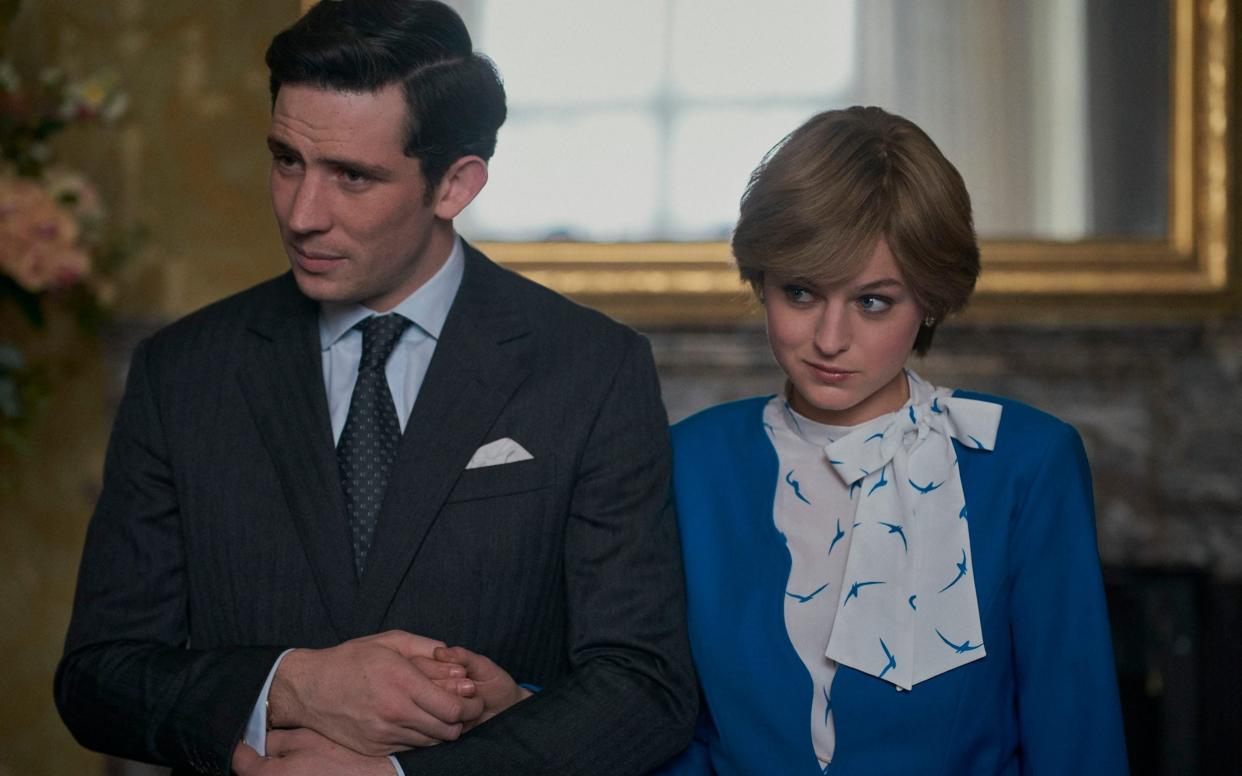Netflix refuses to warn viewers of The Crown that series is historically inaccurate

Netflix has refused to put a “health warning” on The Crown, as they have "every confidence" viewers know it is fiction.
The show, which is now in its fourth series, dramatizes the history and relationships of the Royal family since the 1950s and has faced criticism from politicians, Royal experts and close friends who have urged the streaming giant to put a disclaimer at the start of each episode.
Last week Oliver Dowden, the Culture Secretary, joined calls for Netflix to inform viewers that parts of the drama are made up.
Mr Dowden said that without the caveat younger viewers might “mistake fiction for fact”.
He told the Mail on Sunday: “It’s a beautifully produced work of fiction, so as with other TV productions, Netflix should be very clear at the beginning it is just that … Without this, I fear a generation of viewers who did not live through these events may mistake fiction for fact.”
Helena Bonham-Carter, who plays Princess Margaret in the show, said Netflix had a "moral responsibility" to air the disclaimer.
But the US company claimed on Sunday that it was widely understood that The Crown was a work of fiction.

Netflix told The Mail on Sunday: "We have always presented The Crown as a drama, and we have every confidence our members understand it’s a work of fiction that’s broadly based on historical events.
"As a result, we have no plans – and see no need – to add a disclaimer."
The show’s creator, Peter Morgan, whose partner Gillian Anderson features in the drama as Margaret Thatcher, recently addressed the debate.
He said: “When I write ... there are the things that I want to be the case and there are the things that are the case. There is a constant push-pull ... I’ve learnt, to my cost, that when you’re really only focused on research, the drama suffers. You have to come at it as a dramatist.”
Last week David Bowes-Lyon, a cousin of Princess Margaret, criticised an episode about two of the Queen Mother’s nieces, Nerissa and Katherine Bowes-Lyon, who were born with severe learning difficulties and committed to an institution when still young.
The show suggested Princess Margaret and the Queen had no idea about their cousins’ existence, believing they died. Mr Bowes-Lyon told The Telegraph the portrayal was "fiction pretending to be fact", and revealed it had caused “frustration” within the family.
Earl Spencer, whose sister, Diana, Princess of Wales, features heavily in the new series, said he was worried that people will view the Netflix show as history.
Last month he told ITV’s Lorraine: "I think it would help The Crown an enormous amount if – at the beginning of each episode – it stated that: 'This isn't true, but it is based around some real events'. Then, everyone would understand it's drama for drama's sake.
"Obviously Netflix wants to make a lot of money and that's why people are in the business of making these things.
"I worry people do think that this is gospel, and that's unfair."
Netflix has been contacted for comment.

 Yahoo Movies
Yahoo Movies 
